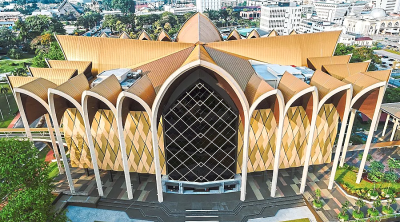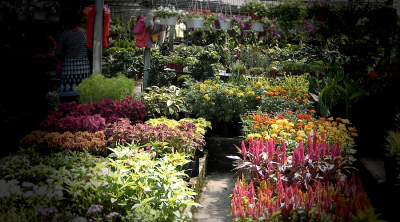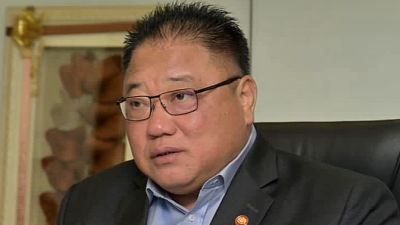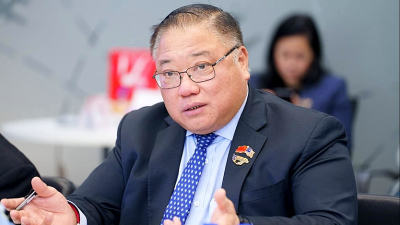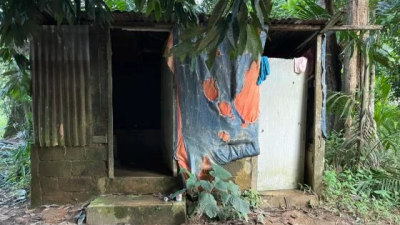Sin Chew Daily
Prime minister Datuk Seri Ismail Sabri Yaakob said on Tuesday that the country would be considering what some other countries are currently doing, by relaxing entry regulations on international travelers on condition that these visitors are fully vaccinated and boosted. However, the views of health ministry will have to be consulted first.
The PM said the travel industry would suffer tremendously if we continue to lock down the country.
Even though the government has liberalized domestic travel, the enormous market of travel agencies, aviation companies, F&B outlets, hotels, transport providers and retailers who rely heavily on some 26 million inbound tourists, will not be able to survive on domestic tourists alone.
Two years into the pandemic, we can see from the following figures that travel-related industries have suffered an avalanche type of collapse.
In 2019, the country recorded 26.1 million international arrivals, and the number tumbled by a whopping 83.5% to only 4.3 million, with 85.3% plunge in tourist receipts from RM86.2 billion in 2019 to RM12.7 billion. Total tourist expenses also plummeted from RM182.1 billion to RM52.4 billion, a massive RM129.7 billion or 71.2% decrease, translating to a loss of almost 8.8% in the country’s GDP in 2020.
We believe the numbers for 2021 will not be any better. If the government does not relax the entry requirements, many in the aforementioned industries will have to wind up their businesses soon. Anyway, 2022 must be a year of travel-related industry revitalization. It will be too late if no emergency action is taken by the government.
In neighboring Singapore, some 25,000 jobs have been lost since the onset of the coronavirus pandemic, equivalent to almost 30% of all travel industry jobs. 2020 tourist arrivals suffered a heavy 85.7% blow from a year earlier, while the slump in Thailand, another major regional destination, was 83.2%.
Meanwhile, global tourist arrivals fell by 74% to only about 400 million from the 1.47 billion recorded in 2019.
Based on the above figures, we mustn’t keep consoling ourselves that the whole world is just as bad as us. Bare in mind that as many as 3.5 million people are employed in Malaysia’s tourism sector, or 21% of the entire workforce.
The thing is, since the travel industry has been doing so badly, why don’t we see a drastic surge in unemployment? Well, many have turned to other industries in order to feed themselves and their families.

Ismail Sabri said the government had continued to allocate “wage subsidies” for tourist industry operators, but the amount is too little to to be considered as of any real help to them.
Late last year, the national recovery council chairman Muhyiddin Yassin said the tourist industry lost a total of RM90 billion since the closure of our national borders, and as such, the government would open up the borders to international tourists beginning January 1.
Well, the month of January is coming to an end soon, but nothing has actually happened yet!
Meanwhile, PM Ismail promised positive results on his government’s 100 days but already 148 days now we have yet to see any strategies from the tourism ministry to tackle the industry’s woes.
As a matter of fact, opening up the borders to international tourists is not that difficult after all. Don’t discuss any more. Just do it right away!
1. As the PM has said, fully vaccinated and boosted foreigners will be allowed to enter Malaysia, with at most a PCR test three days in advance and upon arrival. The thing is, visitor screening has to be conducted efficiently. We don’t want our guests to wait long hours at the airport!
2. After entry, they have to conform to the same sets of SOPs as Malaysians do. Don’t make them do the tests every a few days!
3. Is it safe to open the borders? Absolutely, because the immunity will be over 85% after receiving the booster dose.
4. Draw up the world’s visitor-friendly guidelines and get our foreign missions to help promote Malaysia overseas. Of course, if will be better if travel agencies and other travel-related industries will do the same, too.
5. Off discounts to tourists to encourage them to spend, and to come back here next time.
6. Do it fast instead of stopping at conceptualization. The tourists will go elsewhere if we still don’t act.
Yes, it is just that simple. Most importantly, all the best conceived plans must be accompanied with real efforts to put them into practice in order to succeed.
ADVERTISEMENT
ADVERTISEMENT








